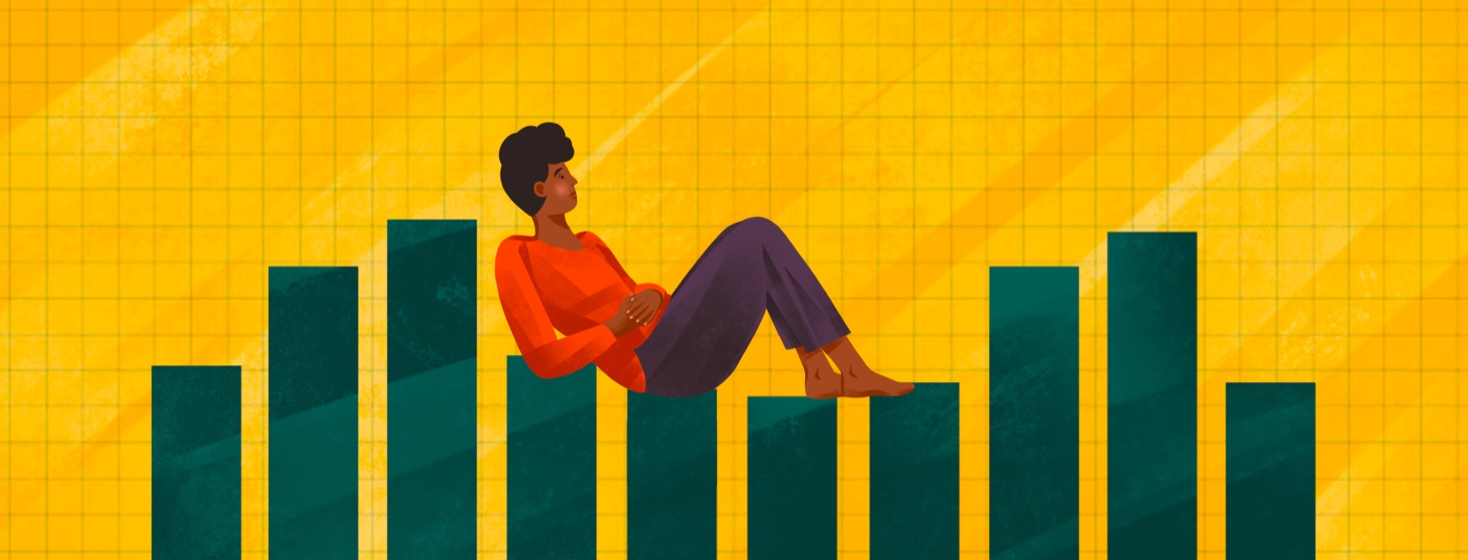Lessons from the 2021 Endometriosis In America Survey: Quality of Life and Coping
Endometriosis is a painful condition that can bring many obstacles in life, along with strong emotions and fears. Endometriosis can impact both daily and long-term quality of life.
Endometriosis affects self-image and self-expression. In our 2021 Endometriosis In America Survey, we explored how endometriosis, and how its symptoms, can impact well-being.
We also looked at how those living with the condition are coping. More than 1,000 people with endometriosis completed the survey and shared some insight on what it is like living with this condition.
Common symptoms of endometriosis include bloating, fatigue, pain, and constipation. These symptoms can take a toll on mental and emotional health.
The physical toll can also affect self-esteem
- 62 percent say endometriosis has negatively impacted their self-image.
- 48 percent compare themselves to others without endometriosis.
The chronic condition can also impact how people with endometriosis express themselves to the world. For example, 65 percent base their clothing choices on symptoms.
Living with endometriosis can feel hopeless
Nearly 50 percent say they experience some symptoms daily, such as pain, fatigue, bloating, and brain fog. Living with chronic symptoms can be overwhelming and make endo warriors feel like they do not have any control. In fact, 61 percent say they feel powerless against endometriosis.
Getting a diagnosis presents emotional challenges
Seeking a diagnosis can bring emotional challenges that can impact how a person feels.
The majority of respondents who have received an endo diagnosis were able to get a diagnosis in less than 5 years. However, 36 percent of respondents went more than 5 years between seeing their doctor with initial symptoms and receiving their diagnosis.
When asked to describe seeking a diagnosis in 1 word, endo warriors often used these terms:
- Exhausting
- Frustrating
- Difficult
- Discouraging
- Hard
- Stressful
- Challenging
Other endo warriors said things like hopeless, ignored, horrific, humiliating, and heartbreaking.
Pain can affect sleep and mood
Living with pain can seriously disrupt sleep patterns. It can be hard to fall asleep or stay asleep when a person is experiencing pain. This could explain why 49 percent experience “painsomnia,” endometriosis pain that prevents them from sleeping well.
Living with a chronic illness and pain can lead to anxiety, depression, and anger. More than half of respondents – 57 percent – say their endometriosis-related pain makes them short-tempered.1
It can cause anxiety for the future
Living with endometriosis can present a lot of unknowns. In fact, 82 percent worry about their endometriosis symptoms coming back over time.
If you or a loved one are struggling with endometriosis symptoms and pain, we encourage you to connect with other endo warriors on our Forums Page or share your endo story today.

Join the conversation